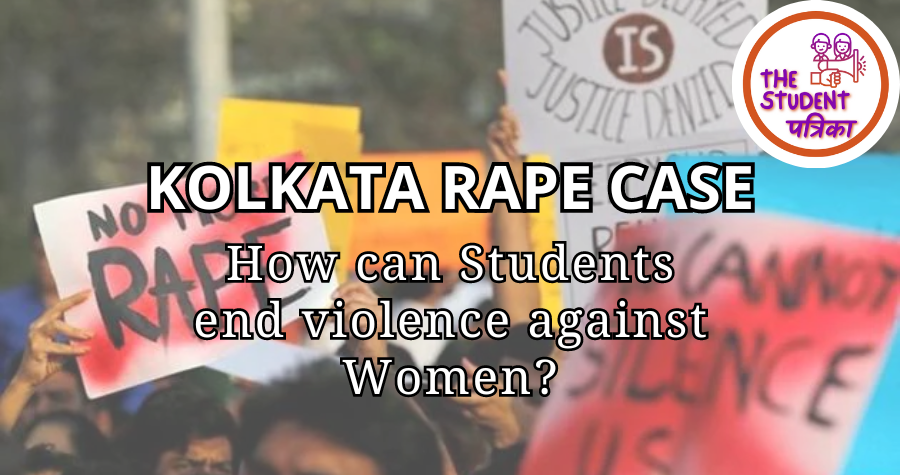
In a disturbing event that shook Kolkata’s medical community and the entire country, a rape and murder was reported on August 9, 2024 at the R.G. Kar Medical College & Hospital. According to police reports, a 31-year-old postgraduate trainee doctor was assaulted and murdered during a night shift, in a secluded area of the hospital. Law enforcement authorities have intervened, and an investigation was launched taking key suspects, including hospital staff, into custody for questioning. The incident has sparked a nationwide outrage from the medical community and citizens alike, and investigation is underway.
This case has brought into focus and renewed the conversation around the safety and security of women in India, especially in public and professional spaces. It underscores the need for a deeper evaluation of existing safety measures and legal frameworks.
Existing legal framework:
India has several laws in place to combat sexual violence. Some of the key provisions include:
- Section 375 of the Indian Penal Code (IPC): This section defines rape and provides for severe punishment for the offense. The minimum punishment for rape is seven years, which can extend to life imprisonment, depending on the circumstances.
- The Criminal Law (Amendment) Act, 2013 (Nirbhaya Act): In response to the 2012 Delhi gang rape case, this act introduced stricter penalties for crimes against women, including the death penalty for repeat offenders and in cases where the victim dies or is left in a vegetative state. It also expanded the definition of rape and made stalking and acid attacks punishable offenses.
- The Protection of Children from Sexual Offenses Act (POCSO), 2012: While this act focuses on protecting minors, it is an important part of the legal structure addressing sexual violence, ensuring that those under 18 receive special protection.
- Section 354 of the IPC: This section criminalizes any assault or criminal force used to outrage a woman's modesty, with imprisonment ranging from one to five years, along with fines.
- Fast-Track Courts: The establishment of fast-track courts to handle rape cases was meant to ensure swift justice. However, the efficiency of these courts has been called into question due to delays and a backlog of cases.
Why these laws are not enough?
Despite the presence of these stringent laws, cases of sexual violence continue to occur at an alarming rate. Here are some of the reasons why existing laws are not enough:
- Implementation Issues: While the laws themselves are robust, the problem often lies in their implementation. Delayed investigations, poor handling of evidence, and the slow pace of trials can diminish the effectiveness of these laws. Survivors may face repeated trauma during lengthy legal processes, which discourages others from coming forward.
- Societal Attitudes: Legal frameworks alone cannot address the deep-rooted cultural and societal attitudes that contribute to gender-based violence. Victim-blaming, stigma, and the normalization of harassment create an environment where perpetrators feel emboldened.
- Under-reporting: Many survivors do not report incidents of sexual violence due to fear of retribution, societal shame, or lack of trust in the legal system. This means that many cases go unaddressed, and offenders are not held accountable.
- Inadequate Policing: In some cases, law enforcement agencies are either under-resourced or lack the necessary training to handle sensitive cases of sexual violence. This can lead to improper investigation, mishandling of evidence, or even dismissal of cases.
- Safety Measures: Public safety infrastructure in cities, such as adequate lighting, surveillance cameras, and regular police patrols, often remains insufficient. Urban planning needs to consider women’s safety as a priority, ensuring that public spaces are secure.
How you, as students, can pave the path forward?
- Educating Themselves and Others: Students should educate themselves about gender equality, women's rights, and the issues that women face, such as harassment, discrimination, and violence. They can help by conducting awareness campaigns like workshops, seminars, and discussions in schools and colleges.
- Challenging Gender Norms and Stereotypes: Students can help break down traditional gender roles and promote equality in their daily lives. Schools and universities should create an inclusive environment where both genders feel safe and respected.
- Advocating for Legal and Policy Reforms: Students can engage with local authorities, police, and legal bodies to advocate for stronger enforcement of laws protecting women. They can start petitions or campaigns to bring attention to issues such as sexual harassment, street safety, or workplace safety.
- Creating Safe Spaces: Students can be a part of safety committees in educational institutions that ensure proper safety measures like well-lit campuses, accessible help centres, and surveillance.
- Social Media Activism: Use social media platforms to raise awareness about women's safety, report incidents, cyberbullying and mobilize support for women's rights. This can include spreading information about helplines, support networks, or organizing online campaigns against harassment and violence.
- Volunteering and Community Engagement: Students can volunteer with NGOs working on women's rights and safety, helping with outreach programs, education initiatives, and grassroots efforts to make communities safer for women. Organizing community-led initiatives like neighbourhood watches or patrolling in areas prone to harassment can increase safety.
- Fostering Empathy and Respect: Students can encourage open conversations about consent, mutual respect, and boundaries in relationships to prevent abusive behaviours before they start. They should actively challenge victim-blaming attitudes and narratives that reinforce harmful stereotypes. This includes standing up for victims, supporting their right to justice, and emphasizing that the responsibility for any crime lies solely with the perpetrator.
- Supporting Legislative Changes and Representation: They can support political candidates and leaders who prioritize women’s safety and gender equality, and advocate for legislative changes that protect women more effectively. Encouraging more women to take on leadership roles within student bodies and political groups can ensure that women's safety and rights are central to discussions and decision-making processes.
By taking these steps, students can play a pivotal role in creating a safer, more equitable environment for women in India. Their active participation, both within educational institutions and in broader society, can drive cultural and social change, making India a safer and more inclusive place for everyone.
Comments
Looking for reliable PVA accounts? ToMyAccount.com has you covered. Our accounts are verified, secure, and created using unique IP addresses to ensure they function perfectly on any platform. Get your accounts instantly and enjoy the convenience of high-quality service. Enter Here: https://ToMyAccount.com Much Obliged!
Looking for verified social media accounts? ToMyAccount.com provides a wide range of PVA accounts that meet all your needs. With our accounts, you get a smooth start on any platform with full control and security. Trust us for fast, reliable account purchases and hassle-free transactions. Tap to View: https://ToMyAccount.com Warmest Thanks!
Hello, I am Husam Orabi, Qatari Investors Group's chief business development and delivery officer. We offer loans and credit facilities at a small interest rate for ten years and a moratorium of up to two years. We also finance profit-oriented projects and businesses. We understand that each business is unique, so let us know what you need for your business, and we will tailor our financing to suit your specific requirements. Regards, Husam Orabi CHIEF BUSINESS DEVELOPMENT & DELIVERY OFFICER Mobile: +971524239312 Whatsapp: +971524239312 husam@qatarinvestors-group.com
Position well regarded!. casino en ligne France Reliable data, With thanks! meilleur casino en ligne Regards. Plenty of postings. casino en ligne You made your point! casino en ligne Wow a good deal of wonderful data. casino en ligne France Reliable forum posts Kudos! casino en ligne fiable You made your point very effectively!. meilleur casino en ligne Fantastic forum posts, Regards! casino en ligne France Nicely put. Cheers! meilleur casino en ligne Seriously loads of terrific data! casino en ligne










